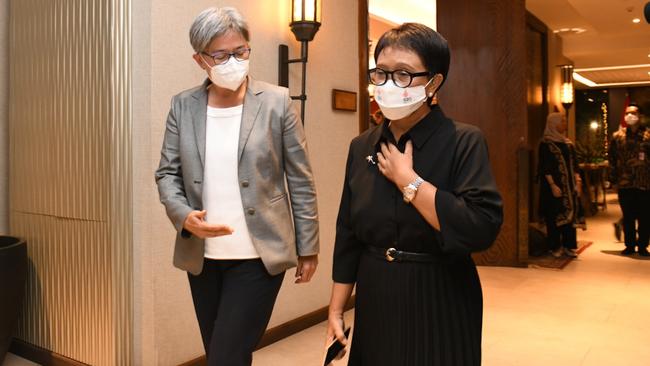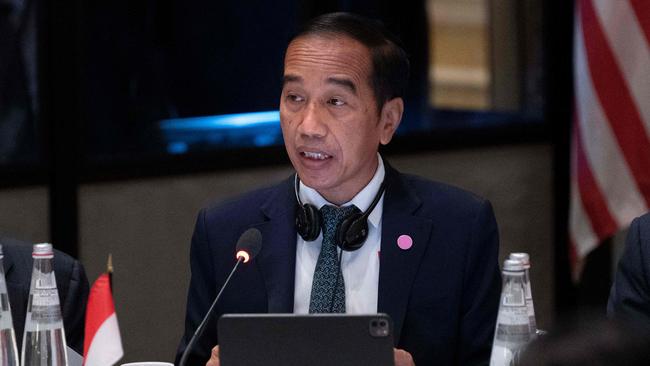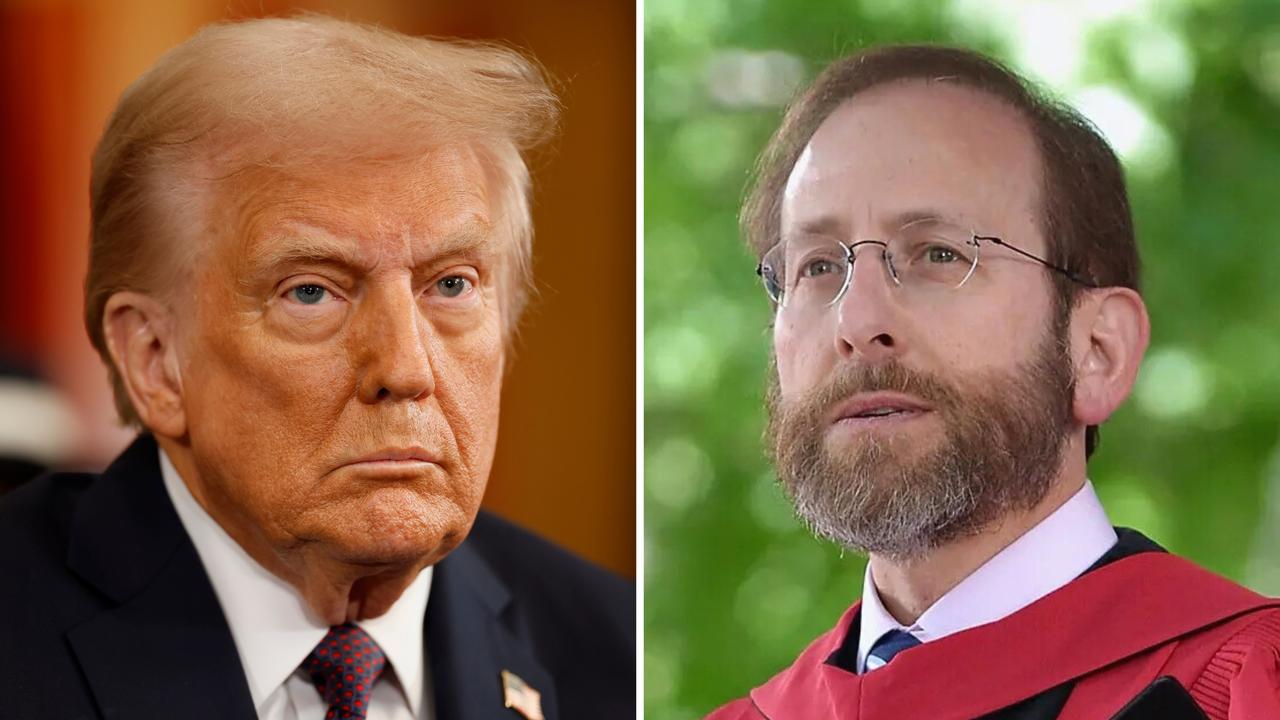Indonesia warns: Indo-Pacific could be next in global instability
Indonesia has warned escalating global distrust as a result of the Ukraine war and US China rivalry is preventing the region from dealing with looming threats.

Indonesia has warned escalating global distrust as a result of the Ukraine war and US China rivalry is preventing regional co-operation in dealing with the looming threats of financial crisis, food and energy shortages.
It says that “what is happening in Ukraine today could also happen in the Indo-Pacific tomorrow”.
Indonesia’s foreign Minister Retno Marsudi warned in a bleak assessment late on Thursday that the ramifications of the war were “staggering”, particularly for developing Indo-Pacific nations still recovering from the pandemic and trying to find ways of riding out the coming challenges in a climate of growing protectionism.
“Respect for international law is eroding, multilateralism is crumbling and unilateralism is gaining momentum,” Ms Retno told a special ASEAN-India meeting in Delhi, where the regional bloc agreed to forge a comprehensive strategic partnership with the South Asian giant.
“These trends have affected us in the region and driven unhealthy and unnecessary competition.”
Southeast Asian nations are deeply concerned about looming food shortages as Russia’s invasion of Ukraine and subsequent blockade of its ports has drastically reduced exports from one of the world’s largest exporters of wheat, corn and cooking oil.
The UN has warned global hunger is at a “new high” as the war batters a global food system already weakened by pandemic, climate change and an energy shock, and countries seek to protect their own food and energy stocks with export bans.
About 440 million more people worldwide are now living with food insecurity while nearly 250 million are on the edge of famine.
Indonesia, as the current G20 president, has become increasingly vocal over the potential for emerging and developing nations – including Association of Southeast Asian Nations member states – to become fodder in the escalating rivalries between major powers.
President Joko Widodo has struggled to keep G20 events focused on his chosen theme of “Recover Together, Recover Stronger” as Russia’s invasion has dominated global discussions and internal politics among the world’s 20 largest economies.

Finance Minister Sri Mulyani also warned this week that risks to the global economy this year had shifted “in a radical way” and the conflict had created a “spillover which is really challenging economic recovery”. Rising food and energy prices had already pushed inflation in many advanced countries to their highest levels in 40 years, inevitably leading to tightened monetary policy that would hamper global economic recovery.
“These are the complex dynamics we need to manage during the G20 presidency of Indonesia,” Dr Mulyani said.
“The current conflict and geopolitical tension are threatening the core values of the G20, which is co-operation.”
In a separate speech to the Delhi Dialogue on economic and security, Ms Retno also reiterated concerns expressed by senior US, Japanese and Australian officials at last weekend’s Shangri La defence talks in Singapore that the growing “trust deficit could easily escalate into an open conflict”.
“If we are not careful what is happening in Ukraine today could also happen in the Indo-Pacific tomorrow,” she said. “This is a wake-up call for all of us in the Indo-Pacific … including for ASEAN and India. For more than five decades ASEAN has worked hard to keep peace and stability in the region.”
In what appeared a veiled swipe at the AUKUS trilateral security pact and Quad security group – which ASEAN views as blocs aimed at balancing China’s regional influence – Ms Retno also stressed that Indo-Pacific architecture “must be inclusive”, and that no co-operation framework should be used as “a tool to alienate other countries”.
With Dian Septiari




To join the conversation, please log in. Don't have an account? Register
Join the conversation, you are commenting as Logout